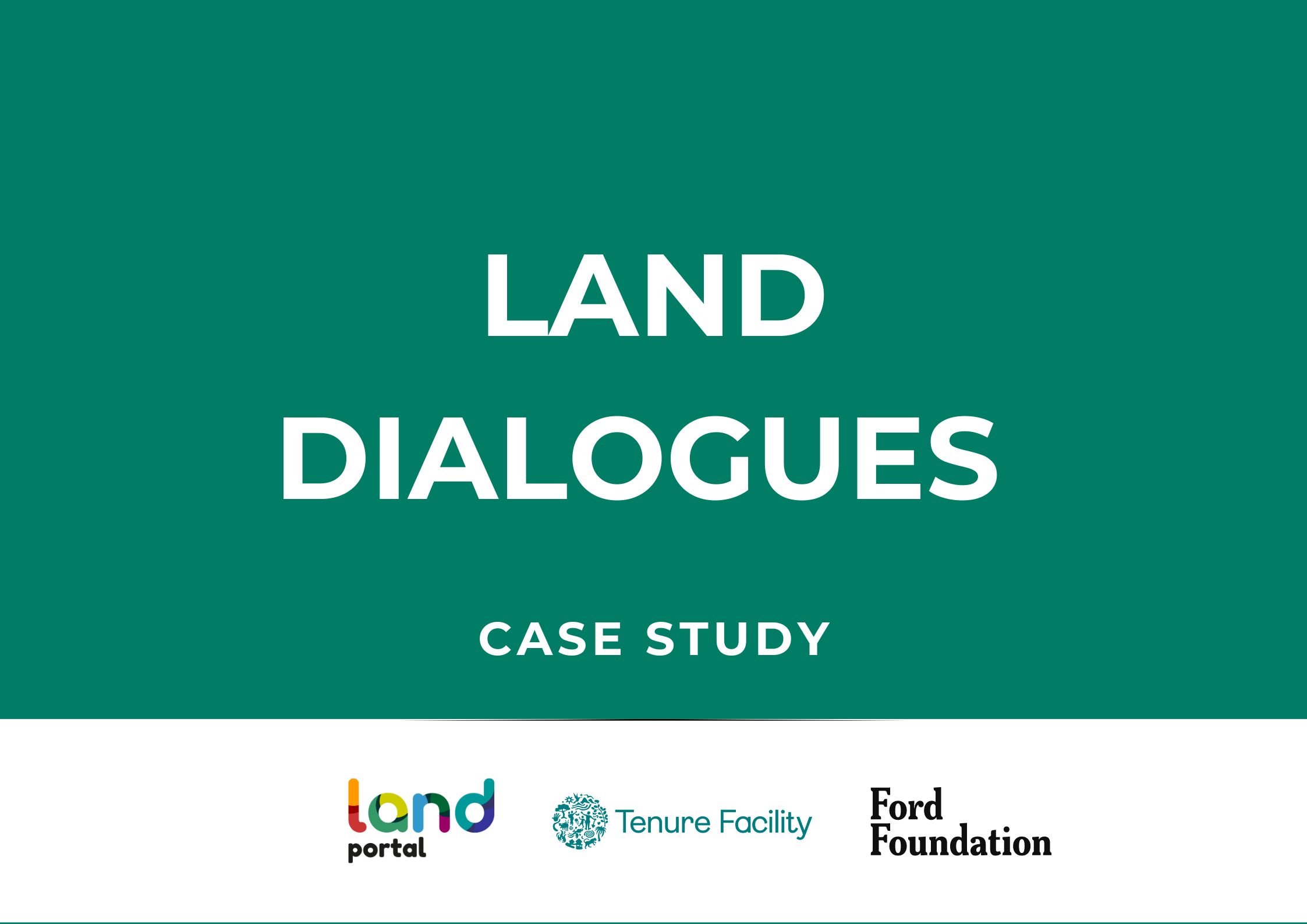The Land Dialogues nurture a community of trust with Indigenous peoples, local communities, and Afro-descendent peoples by producing webinars that bring unlikely voices and perspectives together. Next week, The Land Dialogues will head to New York Climate Week 2024, where the webinar will be presented live for the first time in its four-year history. Read more below about how the series began and expanded, and join us for the next dialog.
Read the case study in PDF
Introduction
The Land Dialogues is a webinar series with the mission to have Indigenous Peoples, local communities, and Afro-descendant Peoples and their land rights be front and center in the climate agenda. Launched in 2020 during the pandemic, the initiative fulfilled a need for engagement and community and has become a well-known destination for dialogue amongst and with Indigenous communities.
Partnership and Collaboration
Land Portal and Tenure Facility are the implementing partners, with financial support from Ford Foundation. Thomson Reuters Foundation was also part of the initial partnership. The Tenure Facility works directly with Indigenous and local communities to issue grants. The Land Portal is a convening leader in the land sector. Together, the two organizations know which issues are of critical importance to Indigenous and local communities and how to produce robust conversations with stakeholders across the globe.
Understanding the oversized role Indigenous Peoples and local communities play in climate change mitigation, biodiversity protection, and deforestation, the partners’ focus is on creating a space where they can develop stronger connections to other groups in the broader land and climate movements.
The Land Portal and Tenure Facility both credit the Ford Foundation for entrusting the implementing partners to build the initiative for the last four years.
Starting in 2024, Land Portal and Tenure Facility are co-hosting each webinar with Indigenous and local organizations. The Youth initiative for land in Africa (YILAA) co-hosted the webinar on Indigenous youth combating climate change (April 2024) and the Global Alliance of Territorial Communities (GATC) co-hosted the webinar on gender and biodiversity (June 2024).
WEBINARS: TELLING STORIES WITHOUT PRESSURE
From the beginning, the Land Dialogues was conceived as a series of free conversations with few boundaries. In the first year, the partners hosted seven webinars, with four webinars annually in subsequent years. The longterm nature of the program enables the team to explore a wide variety of themes. The Dialogues cover established topics such as the UN climate talks, forest governance and traditional knowledge, but also explore less traditional issues. See, for example, the webinars on how Indigenous Peoples can help prevent future pandemics, responsible production of renewable energy on Indigenous territories, and women’s sovereignty over land data, to name a few.
The Land Dialogues often return to topics. One webinar can preview the issues going into the year’s UN climate talks (COPs), with the following sessions picking up the conversation to hash out what was achieved (See COP26, COP27 and COP28 webinars). Another advantage has been working with repeat moderators, such as journalist Thin Lei Win, who has moderated the Land Dialogues six times, and skilfully weaves past conversations back into questions and discussions. Guests are also often invited back. All three core partners cite the series nature of the Land Dialogues as a key factor of success.
Even when Land Portal and Tenure Facility have in-house expertise on webinar topics, the two organizations are rarely part of the panel. This is an intentional effort to build trust and legitimacy behind the brand, as part of the wider objective to “pass the microphone” and amplify Indigenous and local community voices.
Nonetheless, producing each webinar is a result of dozens of collective hours of work. The high-level programming is done annually, with research and deep consultations to identify topics of interest. Panelists are asked to commit to developing and sharing thoughts in the webinar outline well in advance of the event, and also to show up to a rehearsal call. As panelists are located all around the world and speak different languages, this exercise requires a high level of coordination.
Like most Land Portal’s webinars, the Land Dialogues offer simultaneous interpretation into English, Spanish, French, Portuguese, and sometimes Bahasa and Swahili. They are livestreamed to the Land Portal’s social media channels and replays are available immediately. During the webinar, the chat remains open and people introduce themselves and the countries they are from. The results can sometimes be astounding, with people tuning in live from countries across four or five continents.
The webinars are often supplemented by blog posts, reading recommendations, and data stories on the Land Portal, contributing to a holistic learning experience.
The Impact
The Land Dialogues have a global reach and currently average ~1000 registrations and ~280 live attendees. The series has become a source of insight on emerging issues and is a destination for thought leadership with regards to Indigenous Peoples, local communities and Afro-descendant Peoples and their land within the climate agenda.
______________________________
Watch all the Land Dialogues replays here!



